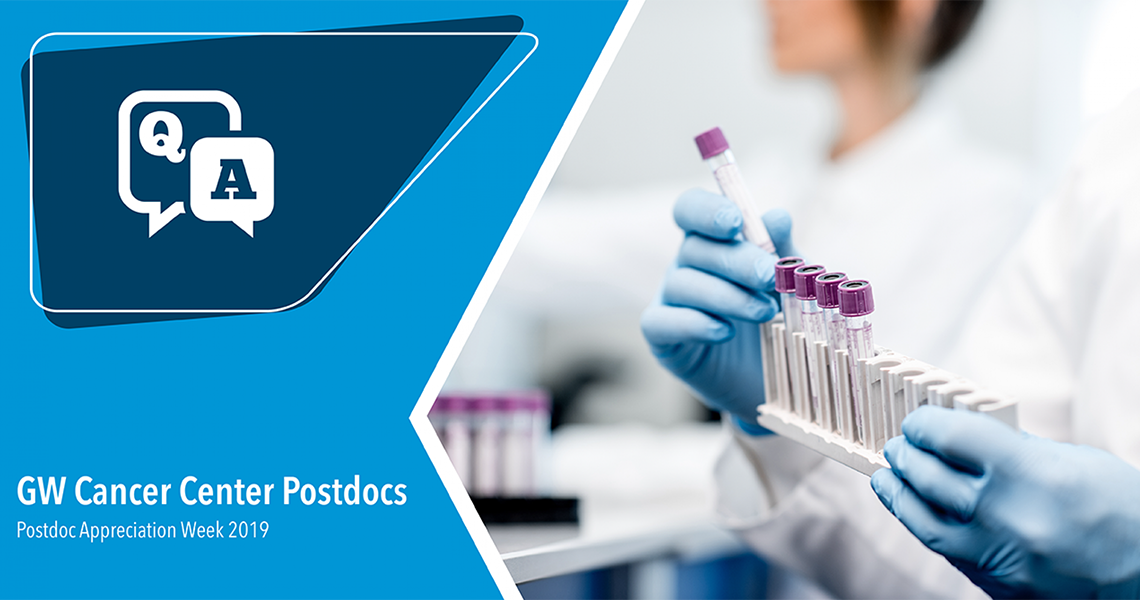Melanie Grant, PhD: Research Postdoctoral Fellow, Bollard and Rood Labs at Children's National
Why did you become a scientist?
I kept getting bored in my previous careers. I am energetic, enthusiastic and a fast learner so I quickly reached the pinnacle of what I could achieve as a flight attendant (working in First Class), company director (took my own company from start up to fully operationalized and sold in 2.5 years) and nutritionist (my own nutrition consulting practice in a busy health clinic - I had the best first year in business our accountant had ever seen). After 2 years as a nutritionist I decided to go back to school to learn more. I fell in love with the giant puzzle that is the human immune system and have not been bored at work ever since!
What inspires you most about your work?
The opportunity to work on something that could have an impact for the good of humanity. The possibility of discovering one tiny piece of the puzzle that could lead to better outcomes for patients makes me feel that my work is worthwhile and that I’m somehow contributing rather than just taking up oxygen and being another consumer.
What advice would you give to someone considering a career in research?
It's important to understand your motivation. Know why you want to do research and try to figure out where in the research world you would best fit. There are so many options - get informed about them from a variety of sources, not just academic advisors.
What's your favorite activity to do outside the lab?
I love to reconnect with nature by getting out in our kayaks with my husband as often as possible. Paddling the lakes and waterways of the Chesapeake region restores my soul. I love seeing the birds, animals and insects that are different from our home country of New Zealand - turtles, frogs, blue jays, cardinals, ospreys, fire flies, giant dragonflies, horseshoe crabs are a few highlights.
James McDonald, PhD (Molecular Genetics and Genomics): Postdoctoral Scientist, Chiappinelli Lab
What brought you to GW?
I came to GW because the best job offer I received near my thesis defense was here.
Why did you become a scientist?
I became a scientist because I was fascinated with genetics and how genes function to build an organism. Through some extracurricular activities in high school, I was able to visit a karyotyping lab for about a week. Of my high school classes, this was one of the first ones where I could see the knowledge applied in the real world. Seeing that knowledge applied piqued my interest and I decided I wanted to become a scientist as a result of that experience.
What is a skill you have learned or would like to learn from your PI?
Time management/multitasking -- something I already have to some degree (wouldn't have gotten a PhD without it) but something I could always improve. Kate [Chiappinelli] is very passionate about her work and manages to accomplish a great deal in a limited amount of time. It is something I could do better.
What's your favorite Foggy Bottom or D.C. spot?
Though I don't make as much time to get there as I would like, I would say my favorite spot in D.C. is the board game store, Labyrinth, near the Eastern Market metro stop.
If you weren't a scientist, what would you be doing?
I would probably be a computer programmer. That was my first career idea before I settled on scientist as a result of the time in the karyotyping lab.
Preethi Bala Balakrishnan, PhD (Nanochemistry for Cancer): Postdoctoral Scientist, Fernandes Lab
What brought you to GW?
I chose Washington, D.C. due to personal reasons, but particularly GW because of the GW Cancer Center and Dr. Rohan Fernandes, who works on my area of interest (nanoimmunotherapy and thermal medicine).
Why did you become a scientist?
Since my childhood, I have always been curious about how things work. I was preparing to enroll in medical school and that's when I decided to become a scientist. Doctors are awesome, but rather than being the person delivering the developed medical strategy to the patients, I wanted to be on the developing side of the bench. New things excite me and also inspire me to see if I can make it better than it is.
What inspires you most about your work?
The people in my field. It's amazing how a group of people with unique abilities and personalities come together to troubleshoot and find solutions to a problem, working in synchrony to achieve the greater goal.
What's the most recent book you've read?
I just finished Sapiens and am currently reading its sequel Homo Deus by Yuval Noah Halari. They are amazing must-reads for people interested in human history and potential future.
What is one thing you cannot live without in the lab?
My lab coat and gloves! Seriously, good PPE [personal protective equipment] is a must in the lab setup.
Wei Tan, MD: Postdoctoral Scientist, Pei Lab
What brought you to GW?
I applied for the postdoc position in Dr. Pei's lab, then came to GW.
Why did you become a scientist?
I wanted to do some significant thing in my life, and so I chose to be a scientist.
What is a current project or work you are excited about?
I am currently working on a program about the function of de novo lipogenesis in cancer development.
How many cups of coffee or tea does it take you to get through the day?
Only one cup of coffee every day, but it's because I'm sensitive to coffee in the morning.
Interested in postdoc opportunities at the GW Cancer Center?
Applicants can view open postdoc opportunities on our website, complete our postdoc interest form or email cancercenter [at] gwu [dot] edu (cancercenter[at]gwu[dot]edu) for more information.




